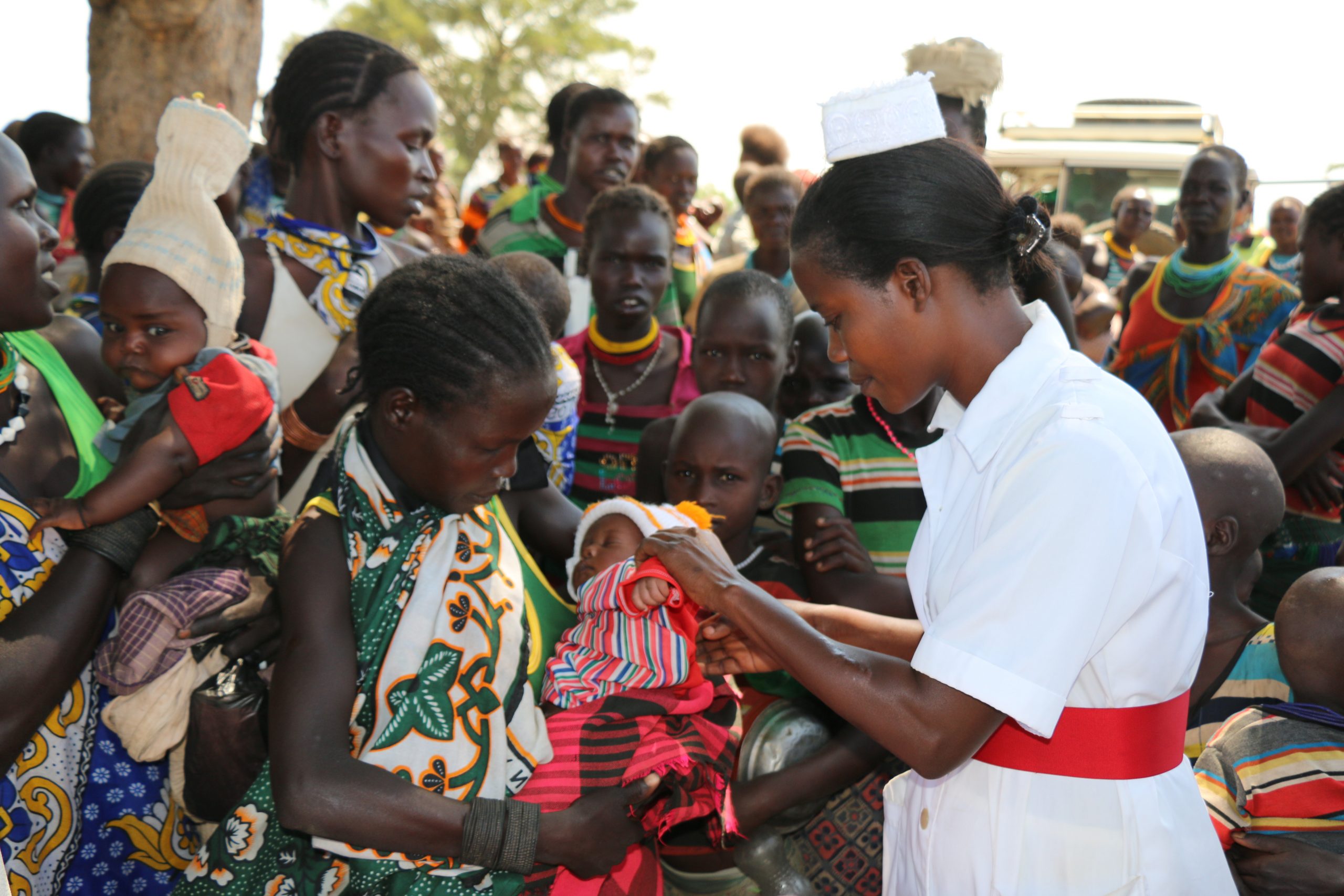
In southern Karamoja, which lies in remote northeastern Uganda, health facilities are few and far between. Previously, 32-year-old mother of five Santina A. struggled to get to her prenatal care visits. She had trouble getting her children their government-provided vaccinations. The closest health facility was over six miles from her village, and she was not convinced that the trip was worth the trouble.
In the past, villagers in southern Karamoja did not bring their children for checkups. For prenatal care, women would occasionally see their doctors but would rarely make it the doctor-recommended number of visits. After babies were born, tradition dictated that mothers delay breastfeeding for one week. In a region that has long struggled with malnutrition and preventable diseases, health care was neither accessible nor a priority.
The USAID Resiliency through Wealth, Agriculture, and Nutrition (RWANU) program, implemented by ACDI/VOCA and Concern, began working in the region in 2012. In 2014, the program started collaboraing with villagers to augment their understanding of the need for and benefits of improved access to health care. To stimulate demand for health care services, RWANU supported the creation of mother care groups, which are led by lead mothers. Lead mothers, who are nominated by their peers, work with RWANU to disseminate important health messages, including better hygiene and sanitation practices, infant and child health care, maternal health, and family planning.

To improve access to health services, RWANU organized and trained village health teams to coordinate with lead mothers and refer pregnant and lactating women and children under two years old to government mobile health services. Serving as a link to communities, these teams support government health care providers at 93 mobile clinics situated close to surrounding villages. The Kobeyon clinic in Nakapiripirit—where Santina brings her children—is popular, serving 1,500 every month. Once a month, this clinic sets up close to several villages and offers vaccinations, vitamins, and prenatal care for the many people who line up.
As Alice A., a midwife who regularly works at health clinics in the area, notes, “In the past, people would run away from us. They were scared and not informed. Now, I am sometimes here until it is dark, seeing all the people who come.”
“I’m grateful for the RWANU program. Before, I didn’t know about health and what causes malnutrition. Now, I see the changes—the children are growing, and I’m very happy about that.” – Santina A., 32-year-old mother of five
As a result of project efforts to spread health messages and create a strong local network of health care providers and support personnel, 7,718 pregnant and lactating women and 100,362 children under two in southern Karamoja received health services through RWANU-supported mobile clinics in 2016. Villagers are now committed to ensuring maternal and child health as they see the benefits first-hand. While resting her youngest child on her hip, Santina smiles and notes that, “If it were not for the RWANU program, this child would not be healthy.”








